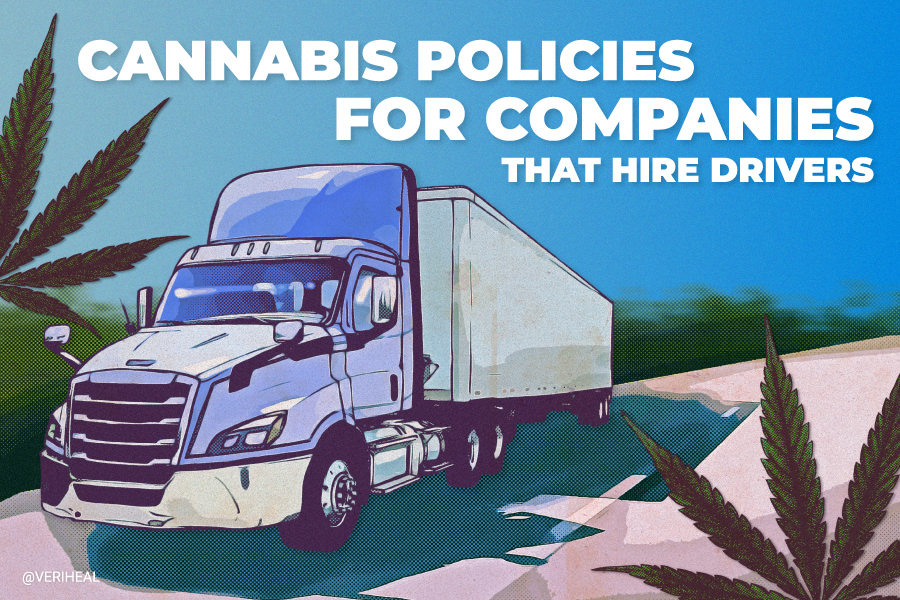Cannabis companies that hire drivers to work for them—such as delivery services and goods transporters—are being advised by the Centers for Disease Control and Prevention (CDC) to establish certain policies that can mitigate the risk of impaired driving, all the while ensuring that companies remain in alignment with state legalization laws.
At the end of November 2021, the CDC’s National Institute for Occupational Safety and Health (NIOSH) announced that there are deep-seated risks associated with driving a motor vehicle under the influence of cannabis’ psychotropic compound tetrahydrocannabinol (THC).
On the other hand, the issue represents a gray area since there is no existing method to identify active impairment from cannabis. For this reason, among many others, the division of the CDC has publicly issued best practices for specialist cannabis companies that hire drivers.
“Despite some unanswered questions about marijuana’s role in crash risk, workers under the influence of marijuana do not have the skills needed to drive safely,” the news feature reads. “Because marijuana use is on the rise for adults in the U.S., this substance needs to be addressed by all workplace motor vehicle safety programs.”
What Does the NIOSH Recommend?
Included in the list of best practices that were recently recommended by the NIOSH was one stating that employers should recognize the fact that “marijuana’s specific contribution to crash risk is unclear because it can be detected in body fluids for days or even weeks after use.”
In addition to this, the NIOSH says that employers ought to develop cannabis policies that abide by “current laws in each state where your company operates.” The CDC’s branch went on to say that a “zero-tolerance policy for marijuana may not be possible, depending on your state’s laws.”
The recommendation states that employers can benefit from implementing a policy prohibiting cannabis-impaired working and use of the plant during working hours. The CDC also advises employers to collaborate with an attorney who can review their policy and provide feedback.
Why You Should Get Your Medical Marijuana Card
Veriheal has satisfied millions of patients nationwide by giving them access to these benefits
- Larger purchase limits
- Peace of mind
- Enhanced legal protection
- Access to higher potency strains
- Save up to 25% on cannabis purchases
- Skip the line at the dispensary
Should businesses consider drug testing an integral part of their workplace policy, employers must first clarify the testing conditions, say CDC officials. Moreover, a trained medical professional should be on-hand to properly analyze the THC testing results, and drivers must be sufficiently trained to understand the risks of ingesting potentially falsely labeled CBD products, i.e., products that might return a positive drug test due to higher THC levels.
Finally, the agency cautions employers to broaden their awareness on “the relevant state marijuana laws and any improved methods for determining impairment” and “access to support for employees with drug problems, either through in-house programs or referrals to local resources.”
Issues With Determining Cannabis Impairment
All of the research that currently exists regarding the connection between driving performance and THC concentrations in blood/saliva was recently analyzed by researchers at the University of Sydney’s Lambert Initiative. The findings, which are featured in Neuroscience & Biobehavioral Reviews, imply that THC concentrations found in blood and oral fluid THC concentrations are not accurate measures of cannabis-induced impairment.
“Higher blood THC concentrations were only weakly associated with increased impairment in occasional cannabis users while no significant relationship was detected in regular cannabis users. This suggests that blood and oral fluid THC concentrations are relatively poor indicators of cannabis-THC-induced impairment,” said the lead author of the study, Dr. Danielle McCartney, from the Lambert Initiative for Cannabinoid Therapeutics.
A different study that was carried out in Switzerland indicated that smokable CBD-rich cannabis does not negatively impact a person’s driving ability, even in instances whereby the participants were over the legal THC limit. A total of 33 participants—19 males and 14 females between 19 and 31 years of age—were given either a potent CBD-packed joint or a placebo.
Even though THC levels exceeded the legal limit for all participants when the testing phase kicked off, researchers noticed no major behavioral differences as per the blood test results. A standard finger-to-nose test and a walk-and-turn test were conducted to assess mood, psychomotor skills, mood, orientation, and blood pressure.
Plus, in 2019, the Congressional Research Service noted that while cannabis consumption may influence motor performance and response times, studies assessing “a driver’s risk of being involved in a crash have produced conflicting results, with some studies finding little or no increased risk of a crash from marijuana usage.”
With such conflicts between government laws and recommendations and scientific findings, employers and law enforcement often find themselves in unresolvable situations regarding a person’s cannabis use and impairment. Until the technology catches up, breathalyzers and urine tests won’t be enough to determine a person’s intoxication from cannabis.
Author, Share & Comments















